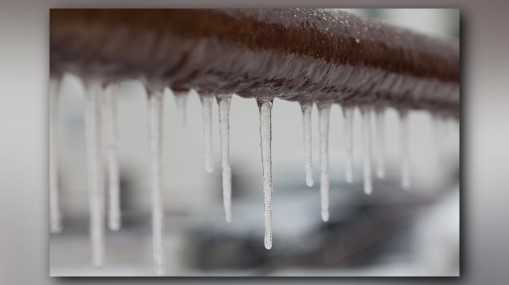We have come across this article about Winter Plumbing Precautions: Preventing Frozen Pipes below on the internet and figured it made good sense to quickly share it with you in this article.

Winter can wreak havoc on your plumbing, especially by freezing pipes. Right here's exactly how to stop it from taking place and what to do if it does.
Intro
As temperature levels decline, the danger of frozen pipes increases, potentially leading to costly repairs and water damages. Comprehending exactly how to prevent icy pipelines is vital for house owners in cold environments.
Prevention Tips
Insulating prone pipes
Cover pipes in insulation sleeves or make use of warm tape to protect them from freezing temperature levels. Concentrate on pipes in unheated or external areas of the home.
Home heating techniques
Keep indoor spaces appropriately heated, particularly locations with plumbing. Open cupboard doors to permit cozy air to circulate around pipes under sinks.
Exactly how to recognize icy pipelines
Look for reduced water flow from faucets, uncommon smells or sounds from pipelines, and noticeable frost on subjected pipelines.
Long-Term Solutions
Architectural modifications
Consider rerouting pipes far from exterior wall surfaces or unheated locations. Include additional insulation to attics, basements, and crawl spaces.
Upgrading insulation
Invest in top notch insulation for pipelines, attics, and walls. Correct insulation aids preserve consistent temperatures and lowers the danger of frozen pipelines.
Securing Outdoor Pipes
Garden tubes and outside taps
Detach and drain pipes garden tubes before winter months. Set up frost-proof faucets or cover outside taps with insulated caps.
Comprehending Icy Pipes
What triggers pipelines to ice up?
Pipes freeze when revealed to temperature levels below 32 ° F (0 ° C) for prolonged durations. As water inside the pipelines freezes, it increases, putting pressure on the pipe walls and potentially triggering them to rupture.
Dangers and problems
Icy pipelines can cause water supply disruptions, residential property damages, and pricey repair services. Ruptured pipes can flood homes and cause considerable architectural damage.
Signs of Frozen Pipes
Recognizing icy pipelines early can stop them from breaking.
What to Do If Your Pipelines Freeze
Immediate activities to take
If you presume icy pipelines, maintain faucets available to eliminate pressure as the ice thaws. Utilize a hairdryer or towels taken in hot water to thaw pipelines slowly.
Final thought
Stopping icy pipelines calls for aggressive measures and quick reactions. By comprehending the reasons, indications, and safety nets, homeowners can safeguard their pipes throughout winter.
5 Ways to Prevent Frozen Pipes
Drain Outdoor Faucets and Disconnect Hoses
First, close the shut-off valve that controls the flow of water in the pipe to your outdoor faucet. Then, head outside to disconnect and drain your hose and open the outdoor faucet to allow the water to completely drain out of the line. Turn off the faucet when done. Finally, head back to the shut-off valve and drain the remaining water inside the pipe into a bucket or container. Additionally, if you have a home irrigation system, you should consider hiring an expert to clear the system of water each year.
Insulate Pipes
One of the best and most cost-effective methods for preventing frozen water pipes is to wrap your pipes with insulation. This is especially important for areas in your home that aren’t exposed to heat, such as an attic. We suggest using foam sleeves, which can typically be found at your local hardware store.
Keep Heat Running at 65
Your pipes are located inside your walls, and the temperature there is much colder than the rest of the house. To prevent your pipes from freezing, The Insurance Information Institute suggests that you keep your home heated to at least 65 degrees, even when traveling. You may want to invest in smart devices that can keep an eye on the temperature in your home while you’re away.
Leave Water Dripping
Moving water — even a small trickle — can prevent ice from forming inside your pipes. When freezing temps are imminent, start a drip of water from all faucets that serve exposed pipes. Leaving a few faucets running will also help relieve pressure inside the pipes and help prevent a rupture if the water inside freezes.
Open Cupboard Doors
Warm your kitchen and bathroom pipes by opening cupboards and vanities. You should also leave your interior doors ajar to help warm air circulate evenly throughout your home.

Hopefully you enjoyed our topic about How to prepare your home plumbing for winter weather. Thanks a lot for taking the time to read our blog. Are you aware of somebody else who is fascinated about the niche? Take a moment to share it. We love reading our article about Helpful Tips to Prevent Frozen Pipes this Winter.
This Resource